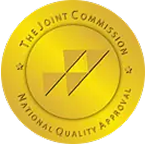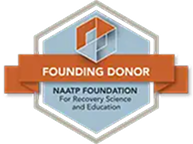Navigating New Year’s Eve in Recovery: Embracing a Fresh Start
For many, New Year’s Eve is synonymous with celebration, reflection, and the excitement of fresh beginnings. It’s a time to reminisce about the past year’s highlights and challenges while looking ahead with optimism. However, for those in recovery, this evening can be a complex mix of emotions. The cultural and social emphasis on alcohol-fueled parties can make it feel isolating or even risky, but New Year’s Eve doesn’t have to derail your recovery. Instead, it can be an opportunity to reinforce your commitment to a healthier, substance-free life. By planning ahead, leaning on your support network, and embracing new traditions, you can turn what might seem like a hurdle into a celebration of your progress and resilience.
Understanding the Challenges of Holidays in Recovery
The unique challenges of New Year’s Eve for individuals in recovery stem largely from its societal norms. Many parties and events feature alcohol as the centerpiece of the festivities, and the countdown to midnight is often paired with a champagne toast. For some, the pressure to conform to these traditions can feel overwhelming, triggering memories of past behaviors or creating anxiety about standing out. Additionally, the emphasis on social gatherings might highlight feelings of loneliness or inadequacy if your recovery has changed your social circle.
Juggling the holidays and recovery can come with challenges, but recognizing these challenges is the first step in preparing for a successful evening. Acknowledging the difficulties allows you to approach the night with intention and self-compassion, reminding yourself that your sobriety and well-being come first.
Know Your Relapse Triggers
Relapse triggers are personal and vary from person to person. For some, it might be the sight or smell of alcohol. For others, it’s a specific group of friends or environments where substance use was prevalent. Spend time reflecting on your own and develop strategies to avoid triggers or managing them. If you know that certain parties or venues are likely to compromise your recovery, give yourself permission to say no. Your commitment to sobriety is far more important than any temporary social obligation.
Make a Detailed Plan
Having a plan in place is one of the most effective ways to navigate holidays in recovery. Decide in advance where you’ll be spending the evening, who you’ll be with, and how you’ll handle potential challenges. If you’re attending a gathering, bring your own non-alcoholic drinks and rehearse polite but firm ways to decline offers of alcohol. For example, “I’m good with this soda, thanks,” or “I’ve got an early morning tomorrow” can deflect further questioning.
Alternatively, you might choose to attend a sober activity or host your own celebration. By creating an environment that aligns with your values, you can avoid unnecessary stress and focus on enjoying the night with like-minded people.
Lean on Your Support Network
Your support network is a cornerstone of your recovery, and New Year’s Eve is an excellent time to lean into it. Whether it’s attending a 12-step meeting, reaching out to your sponsor, or spending time with friends who are also sober, staying connected can help reinforce your commitment to recovery. Many recovery groups host special events during the holiday season, including sober New Year’s Eve celebrations or marathon meetings. These gatherings provide a safe space to celebrate without the pressure of alcohol or other substances.
If you’re unable to meet in person, consider virtual connections. A quick video call or text exchange can offer encouragement and remind you that you’re not alone in this journey.
Set Realistic Expectations
It’s easy to get caught up in the cultural hype surrounding New Year’s Eve. Social media often amplifies this pressure, with images of glamorous parties and grandiose resolutions dominating our feeds. However, it’s important to remember that these portrayals are often idealized and don’t reflect reality.
Set realistic expectations for the evening. Instead of focusing on creating a “perfect” night, prioritize what truly matters to you. This might mean spending a quiet evening reflecting on your accomplishments or enjoying a low-key dinner with loved ones. Let go of the pressure to conform to societal norms and instead focus on what feels right for your recovery. Setting goals in recovery and celebrating small wins can help you navigate challenging moments.
Embrace Self-Care
Self-care is always important, but it’s especially crucial during potentially stressful times like New Year’s Eve. Engaging in holiday self-care tips for your physical and emotional well-being can help you stay grounded and resilient. Get plenty of rest in the days leading up to the event, nourish your body with healthy foods, and engage in activities that bring you joy or relaxation. Exercise, meditation, or journaling can be excellent outlets for managing stress and staying focused on your goals.
If the evening feels overwhelming, give yourself permission to take a step back. It’s okay to leave a party early or opt out entirely if it’s in your best interest. Your recovery is a priority, and practicing self-compassion is key.
Have Strategies for Cravings
Cravings can be a natural part of recovery, and they may arise during New Year’s Eve festivities. Planning for these moments can make them easier to manage. Keep a non-alcoholic drink in hand to deter offers of alcohol, and practice responses to common questions about why you’re not drinking. Deep breathing exercises, grounding techniques, or a quick call to a supportive friend can also help you navigate cravings in real-time.
Celebrate Your Progress
New Year’s Eve is a wonderful opportunity to celebrate your journey in recovery. Take time to reflect on the progress you’ve made, the obstacles you’ve overcome, and the steps you’ve taken to build a healthier, more fulfilling life. Whether it’s one day, one year, or a decade of maintaining sobriety, every milestone is worth honoring. Celebrating sobriety and your commitment to change is a way to use the evening as a chance to reaffirm your dedication to your recovery.
Focus on Intentions, Not Resolutions
The tradition of making New Year’s resolutions can sometimes feel overwhelming, especially if those resolutions are overly ambitious or rigid. Instead, consider setting intentions for the year ahead. Intentions are more flexible and grounded in your values, making them easier to incorporate into your daily life. Examples might include practicing gratitude, deepening your recovery work, or fostering meaningful relationships. By focusing on intentions, you can approach the new year with purpose and positivity.
Create New Traditions
Recovery is an opportunity to redefine your life and create traditions that align with your values and goals. Consider starting a new tradition for New Year’s Eve that doesn’t involve alcohol or substances. This could be as simple as watching a favorite movie, hosting a game night, or writing down your hopes and intentions for the coming year. By building new traditions, you can create meaningful and enjoyable ways to celebrate that support your success in recovery.
Remember, You’re Not Alone
Perhaps the most important thing to remember is that you’re not alone. Millions of people around the world are navigating recovery, and many face the same challenges during the holiday season. Reach out for support, stay connected to your recovery community, and remind yourself that you’re part of a larger network of individuals who share your goals and values. The strength of this community can be a powerful source of encouragement and inspiration.
Looking Ahead: A Fresh Start
New Year’s Eve marks the beginning of a new chapter, and in recovery, every day is an opportunity for a fresh start. By prioritizing your well-being, making thoughtful choices, and surrounding yourself with support, you can navigate the evening with confidence and hope. Recovery is a journey, not a destination, and each step you take brings you closer to the life you deserve.
As you ring in the new year, celebrate the courage it takes to choose recovery and the strength you’ve shown in staying committed to your goals. Here’s to a new year filled with growth, gratitude, and the continued joy of living a life free from substances. Happy New Year!
For more information, resources, and encouragement, like the Fellowship Hall Facebook page and follow us on Instagram at @FellowshipHallNC.
About Fellowship Hall
For 50 years, Fellowship Hall has been saving lives. We are a private, not-for-profit 501(c)(3) specialty hospital treating adult women and men suffering from addiction to alcohol and/or drugs. Our mission is to help people who suffer from substance use disorder, and to provide compassionate, cost-effective care while maintaining our commitment to a Twelve-Step philosophy. We provide a community that meets you where you are without judgement in a serene, calming environment nestled on over 120 acres. We are dedicated to providing the highest quality of treatment options to assist guests and families suffering from Substance Use Disorder and co-occurring disorders. Our staff offers decades of experience and a unique perspective; we understand recovery. Our treatment is holistic, focused on stabilization, education, and development of a support network to maintain recovery. We work with several insurance providers but we do not accept Medicaid or Medicare. We have earned the reputation of being a center of teaching excellence, providing training to Duke University Health System’s Psychiatric Residency Program, as well as training for nursing and counseling programs at our local universities.






